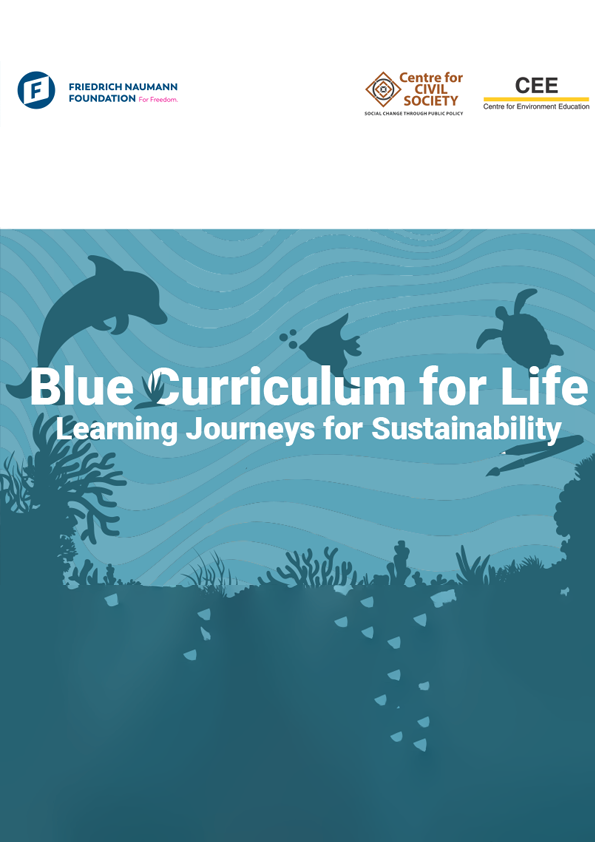When we refer to the ‘Blue Curriculum,’ we do not confine the term to the conventional notion of a set of academic courses. Instead, we conceive it as an educational strategy that goes beyond textbooks and classrooms. It includes transformative education, lifelong learnings, sustainability dialogues, values, ethical awareness, and a deep-rooted sense of responsibility. The word Blue signifies both our planet Earth and Water – a universal symbol of fluidity, adaptability and interconnectedness. The Blue Curriculum is, therefore, an evolving educational journey that reflects the nurturing qualities of water, fostering a holistic sense of responsibility for the well-being of individuals, communities, and the Blue Planet.
The purpose of this guidebook is to empower educators with practical strategies to encourage collaboration and provide real-world examples to easily integrate sustainability dialogues into their teaching practices. The activities provide a scope for co-creation of knowledge, participatory learning, nurturing of values and personalized learning pathways through hands-on activities, case studies, group work, individual and collective reflections and dialogues, experiments, exercises, and information. The activity and collaborative mode of learning and co-creation of materials and documentation of their individual and collective learnings as charts, posters, notes, etc. enable educators and learners can also simultaneously access informally and collectively their learning progress, gaps in understanding, new knowledge, critical thinking opportunities, and several other indicators of assessment of learning outcomes. Educators may find the activity-based mode of learning and facilitation as a useful methodology for continuous evaluations in non-formal settings and analyzing the effectiveness of such co-created learning strategies.
Author's Name: Shriji Kurup, Centre for Environment Education (CEE)



